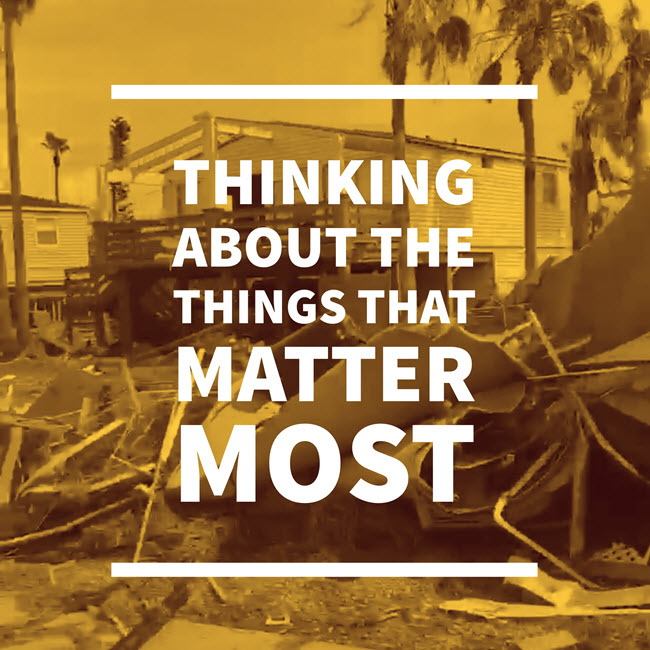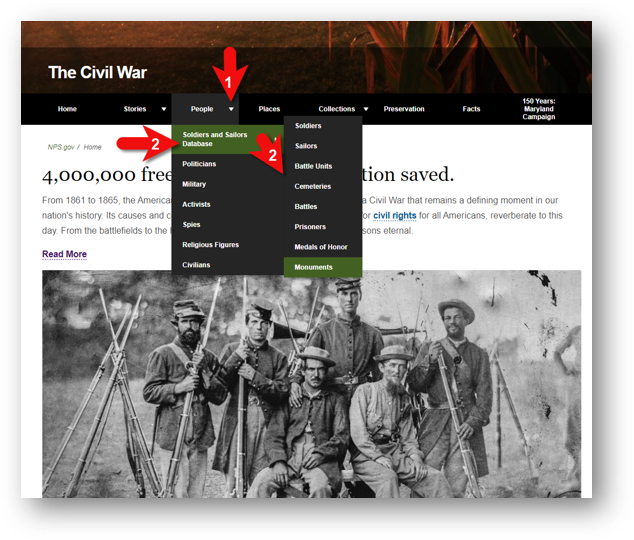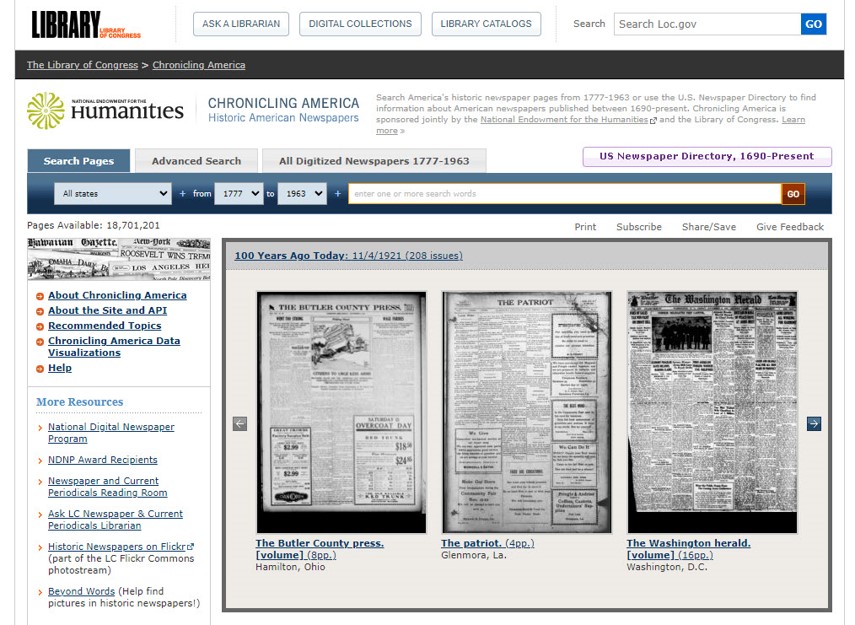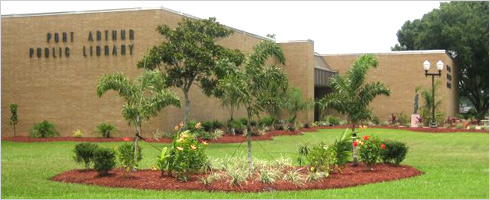Now Online: England Parish Records and More
English parish records top this week’s list of new online genealogy records. More new or updated family history collections: British newspapers, pensions and India records; records for Brazil, Germany, The Netherlands, Peru, and Poland; UK images and deaths; US...Disaster Recovery for Genealogy: “Think About the Things That Matter Most”
Damage reports are surfacing in the aftermath of Hurricane Harvey. Today we discuss how two Texas library collections have fared, and disaster recovery strategies for genealogy researchers. I’ve got a fantastic get-started video tip for those trying to rescue documents, photos, and other family heirlooms–and the two steps everyone should take to protect their priceless genealogical collections.

Port Aransas, Texas
My heart goes out to those who have been in the paths of Hurricanes Harvey and Irma recently. Knowing I live in Texas, many of you have asked how my family is doing. I’m happy to report that the storms didn’t reach those of us here north of Dallas. However, our daughter Hannah and her husband, while thankfully safe after evacuating from their home on the Texas shore, suffered the loss of their car and other possessions, and Hannah’s workplace was destroyed. They are now part of the relief and recovery efforts, and look forward to when they will be able to return to their home, which is currently uninhabitable. We feel very blessed that they are safe and sound, and our prayers go out to all who suffered losses.
Disaster Recovery for Genealogy Libraries

Clayton Library Center for Genealogical Research, Houston, TX. Wikimedia Commons image; click to view.
As lives are secured and order begins to be restored in devastated areas, I’ve wondered how various genealogy libraries and archives have fared. Genealogy Gems listener Chris emailed me with an alert that the Clayton Library Center for Genealogical Research in Houston, Texas has suffered some damage. “So sad for genies!” she writes. Indeed! The Clayton is one of the top public library genealogy research centers in the United States.
Not wanting to disturb their recovery efforts with a phone inquiry, I’ve turned to Google searching and social media for a status report. The Houston Public Library Foundation states that the Clayton is among one of 10 library locations that are “unable to open due to various building damages.” The Clayton Library Friends Facebook page offers more specifics–and this hopeful report:
“Yes, there was some flooding at Clayton Library and according to Susan Kaufman, Manager, Clayton Library is closed this week. Clayton Library staff will be deployed to other libraries that are open.
Clayton Library did suffer some water damage but it was not really that bad. They just need to decide how best to proceed since they were planning on doing renovations soon anyway.”
CityofHouston.news tells us what Clayton staff may be doing at other library branches: “The services and resources that are available at your library system include free access to WiFi and computers, one-on-one assistance with filling out applications and forms, and access to the expertise of library archivists who can assist you in preserving and saving precious family memorabilia such as books, letters and photographs that may have been damaged in the storm.”
Chris’ email encourages us to support the recovery effort for Houston’s libraries through the Houston Public Library Foundation: here’s the link she sent to their donation portal.
Down on the coast, another library system wasn’t so fortunate. The Port Arthur Library will remain closed for months, reports the Port Arthur News. “The Port Arthur Public Library was one of many buildings hit hard by Harvey,” states an article by L.V. Salinas. “It sustained flood damage and the subsequent mold issue inundated buildings often face afterward. It also sustained substantial damage and loss of property of its books, computer equipment, archives and more.”
Crews are working to clean up and preserve what they can. High priority is being given to their historical and genealogical resources: “One of the costlier processes was the freeze-drying of irreplaceable items like genealogy records, microfilm, Port Arthur historical photos and collections. The intent, as performed by companies contracted by the city, was to prevent any further damage from taking place, kill the bacteria that’s present and preserve the items long enough for a transference of information by experts.”
The Port Arthur History Collection is proudly described on the library website; it includes a collection of historic photos that were lovingly organized by volunteers and placed in archival-quality storage. “It’s one of our highest buy testosterone medication priorities,” states a library official in the article. “It’s time sensitive, and it has to happen now….We have to preserve it now.”
Disaster Recovery for Genealogy Researchers
As genealogists, we to have our personal and precious libraries and archives. We build trees in software–some of us spending hundreds or thousands of hours on them. We may have files, books, and other research materials. Many of us are family archivists: the stewards of priceless original family documents, photos, and other artifacts. Here’s some level-headed counsel for after a disaster strikes–and here’s what the rest of us should be doing now, before another disaster.
After a Disaster: Take It One Step at a Time
If you’ve been affected by a recent disaster, I’d like to share this fantastic, level-headed advice from Rennee Tallent, Galveston Historical Foundation’s Manager of Historic Collections (Galveston, Texas was hit by a hurricane in 1900–the “deadliest natural disaster in American history”):
I love her compassionate advice:
“Walking into [your home after a disaster] is very overwhelming. Try to take a deep breath and think about the things that matter most to you and what your priorities are. Take it one piece at a time: after you’ve finished that one, move on to the next.” -Rennee Tallent, Galveston Historical Foundation’s Manager of Historic Collections
Start your recovery efforts with whatever matters most to you, Renee says. But she reminds us that certain items are more vulnerable to destruction than others, so try to also focus on things made out of paper and photographs, then cloth, then wood. Leave your china, silver, and glassware until these other items have been stabilized.
Before Disaster Strikes: Digitize and Back It Up!
If a disaster strikes, most of us won’t have the time to grab all our genealogy research files, photographs, and other precious heirlooms. But many of these items are one-of-a-kind–unless we make them two-or-more-of-a-kind!
As family archivists, we can best preserve our past by:
- Digitizing it. Make high-quality digital scans of original documents and photos. Take digital pictures of three-dimensional heirlooms such as clothing, handicrafts, even quilts.
- Backing up your digital files. Should a disaster occur–whether storm, theft, or fire–your computer may suffer the same fate as any original documents and heirlooms in your home. So I recommend investing in an automated, cloud-based backup service for your computer.
 For a few dollars a month, a cloud-based backup service will continually back up your computer files to a remote server. In the event of any loss (including a computer crash), you can download them again. Having a digitized version of those original Civil War letters or photos isn’t quite the same as the real thing–but it’s so much better than having them disappear entirely. And if you’re like me, your computer doesn’t just house your photos and research files. It may have hundreds or even thousands of work files, personal files, music, or video files and more.
For a few dollars a month, a cloud-based backup service will continually back up your computer files to a remote server. In the event of any loss (including a computer crash), you can download them again. Having a digitized version of those original Civil War letters or photos isn’t quite the same as the real thing–but it’s so much better than having them disappear entirely. And if you’re like me, your computer doesn’t just house your photos and research files. It may have hundreds or even thousands of work files, personal files, music, or video files and more.
I use Backblaze for my personal computer and to back up thousands of Genealogy Gems audio, video, and other files. Backblaze is made for everyday consumers: it’s affordable and easy to use. Do your research yourself and choose the best cloud-based backup for you (click here to read the 8 features you should be watching for).
Our Service “Happiness” Manager, Lacey, experienced first hand the benefits of having her computer backed up:
Right after our Genealogy Gems seminar in Dallas in early August, I came home, sat down to work, and discovered my laptop had died. I tried everything I could find to get it going again (thanks to Google search results) but it couldn’t be revived. Thankfully, I had both Backblaze and Dropbox installed on my computer, and I didn’t lose any files at all. I was able to get everything back! Even my Google account saved all of my settings and bookmarks for my Chrome browser, so when I got my new computer, just about everything was restored as though nothing had happened. I was SO RELIEVED! Planning ahead really paid off!
 (If you decide to go with my favorite, Backblaze, thanks for clicking here to purchase it. The modest commission we receive supports the free information I provide on this website and the Genealogy Gems podcast.)
(If you decide to go with my favorite, Backblaze, thanks for clicking here to purchase it. The modest commission we receive supports the free information I provide on this website and the Genealogy Gems podcast.)
My sincere wishes for the safety of your families–and your family history.
15 Freebies for Genealogy
A ton of genealogy and family history research can be done for free. In this episode I’ll share 15 fabulous free websites and what I love about them. These are essential for everyone serious about saving money while climbing their family tree.
(Get your ad-free Show Notes Cheat Sheet at the bottom of this page in the Resources section.)

LISA’S SHOW NOTES: Get your ad-free downloadable handout in the Resources section at the bottom of this page.
Episode 77 Show Notes
1. Genealogy records – Familysearch
Website: https://www.familysearch.org/en/
Features:
- Free account
- Download and print
- Historical records
- Digitized Books
- Browse Images
- Trees
2. Books, Magazines & Newspapers – Google Books
Website: https://books.google.com
Features:
- 10 million free digitized book
- Google’s newspaper collection
- Magazines
- Catalogs
- Almanacs
- City directories
- County histories
- Court records
- Government reports…
Tip: Use the Tools button on the results page to reveal the filter menu. Filter your results down to just full digitized and searchable books by selecting Full View.
Learn more: Elevenses with Lisa episode 30.
3. Records – Find free records at Ancestry
Website: tinyurl.com/lisaancestryfree (affiliate link)
Features:
- Use the link to zero in on only free records
- All types of genealogical records!
- Use fields to search just the free records and free indexes.
- Free Trial available
Learn more: Elevenses with Lisa episode 17.
4. Burial Records – Find a Grave
Website: https://www.findagrave.com
Features:
- over 170 million burial records.
- birth, death, and burial information
- many submissions include additional biographical details (possibly an obituary) and information about spouses, children and parents.
Search Tips:
- Name fields:
? replaces one letter. - * represents zero to many letters. g. Lars?n or Wil*
- Search for an exact birth/death year or select a range, before or after.
Select “More search options” to:
- Search for a memorial or contributor by ID.
- Include the name of a spouse, parent, child or sibling in your search.
- Use partial name search or similar name spellings to catch alternate spellings or broaden your search.
- Narrow your results to famous, Non-Cemetery Burials, memorials with or without grave photos and more.
5. Free downloadable worksheets – Family Tree Magazine
Website: https://www.familytreemagazine.com/FREEFORMS/
Features:
- 5 Generation Ancestor Chart
- Family Group Sheets
- Ancestor Research Worksheet
- Records Checklists
- Family Relationship Chart
- Online Search Tracker
- Ancestor Surname Variant Chart
- Oral History Interview Worksheet
- S. Census Checklist
- Genealogy Source Documentation Guide
6. Resources & Information – US Gen Web
Website: https://usgenweb.org/
Features:
- Free, volunteer organization for 25 years
- Organized by State then Organized by County
- Free guidance from experienced researchers in that area
- Links to free records
7. Resources & Information – FamilySearch Wiki
Website: https://www.familysearch.org/wiki
Features:
- Organized by country, state, county…
- Provides an overview
- Directs you to where known records are located
- Alerts you to pitfalls and tips from experts at the FHL
Learn more: Elevenses with Lisa episode 64.
8. Passenger Lists – Ellis island Website
Website: https://heritage.statueofliberty.org/passenger
Features:
- Passenger lists images & transcriptions
- Photos of Ships
Search by:
- name
- the Wizard
- One page form
Snagit Clipping Tool: Here’s our link for purchasing your copy of Snagit (screen clipping tool) Thank you for using our link. Use coupon code GENEALOGY15 to get 15% off. (We will be compensated at no additional cost to you, which makes the free Elevenses with Lisa show and notes possible.)
Learn more: Elevenses with Lisa episode 34.
9. Books, Images, Videos – Internet Archive
Website: https://archive.org
Features:
- Old webpages
- Books
- Images
- Records
- Audio Recordings
- Storage
- Videos
Learn more: Elevenses with Lisa episode 43.
10. Photo Identification – Dead Fred photos
Website: https://deadfred.com
Features:
- A place to post photos for potential identification
- Reunite orphaned photos with families
- Find old family photos
11. Military Records – Soldiers and Sailors
Website: https://www.nps.gov/civilwar/soldiers-and-sailors-database.htm
“Cooperative effort between the National Park Service and several public and private partners whose goal is to increase Americans’ understanding of this decisive era in American history by making information about it widely accessible.

11. Soldiers and Sailors Database
Features:
- Men who served in the Union and Confederate armies during the Civil War.
- Histories of Union and Confederate regiments.
- Links to descriptions of significant battles.
- Selected lists of prisoner-of-war records and cemetery records.
Learn more: Genealogy Gems Podcast episode 149.
12. Postcards & Newspapers – Old Fulton Postcards
Website: https://fultonhistory.com/
Features:
- Started as New York post cards
- Expanded into newspapers
- Now boasts “Search over 41,433,000 Historical
Newspaper Pages from the USA & Canada”
Tips:
- Take the time to visit the Help & FAQ section
- Visit the Old Fulton New York Post Cards page at the FamilySearch Wiki.
13. Newspapers – Chronicling America
Website: https://chroniclingamerica.loc.gov
Features:
- Newspaper Directory (1690-present)

13. Chronicling America: the Newspaper Directory
- Digitized Newspapers (1777-1963)
- Image search with Newspaper Navigator
Learn more: Elevenses with Lisa episode 26.
14. Land Records – BLM GLO
Website: https://glorecords.blm.gov
Features:
- Land Patents
- Land Surveys
- Legal Land Descriptions
Learn more: Elevenses with Lisa episode 67
15. Video – YouTube
Website: https://www.youtube.com
Features:
- Home Movies
(search by surname,
“old home movie”, locations) - Old Newsreels
- Local TV station coverage
- Documentaries
Learn more: Elevenses with Lisa episode 58.
Resources
- Download the ad-free show notes (Premium Member log in required. Not a Premium Member? Become a Genealogy Gems Premium Member.)
- Subscribe for free to our Genealogy Gems YouTube channel so you’ll never miss another episode.
- Subscribe to my free email newsletter to get notifications of new videos and articles.
Questions and Comments
Please leave your questions and comments below.

